Basically the original Netflix series: started strong, had a messy middle, and the finale was a 200-year battle royale.
1️⃣ Let’s Keep It Short & Sweet
TL;DR:
The Zhou Dynasty was the longest-reigning dynasty in Chinese history. They invented the ultimate political excuse called the “Mandate of Heaven” to justify their rule, and while their kingdom eventually crumbled into a massive free-for-all, they laid the entire philosophical and technological groundwork for the next 2,500 years of Chinese civilization.
What Actually Happened:
- The Ultimate Justification: They overthrew the previous Shang Dynasty and said, “Heaven told us to.” This “Mandate of Heaven” concept meant a ruler had to be good to his people, or the cosmos would fire him via natural disaster or rebellion.
- The Philosophical Boom: The later part of the dynasty was so chaotic that it triggered a massive intellectual explosion called the “Hundred Schools of Thought.” This is where superstars like Confucius (be orderly and respect your elders!), Laozi (go with the flow, man!), and the Legalists (everyone is terrible, make lots of rules!) came up with their big ideas. These are arguably the most famous ancient China Zhou Dynasty achievements.
- An Iron-Clad Revolution: They mastered cast iron. This was a monumental leap in technology. Iron plows meant more food, which meant more people. Iron weapons meant… well, you can guess what that meant, especially when all the lords started fighting each other.
- From Unified Kingdom to Royal Rumble: The dynasty is split into two parts: Western Zhou (when the king had actual power) and Eastern Zhou (when the king was basically just a respected figurehead while local lords built their own kingdoms and fought constantly).
Why It Mattered:
The ideas and inventions from this era are the bedrock of Chinese culture. The concepts of cosmic balance, ethical governance, and family structure, plus major advances in agriculture and warfare, shaped China’s destiny forever.
Bonus Fun Fact:
Chopsticks became widespread during the Zhou Dynasty. Confucius, a vegetarian, supposedly liked them because sharp knives at the table reminded him of slaughterhouses.
Oversimplified Rating: 🧠🧠🧠🧠🧠 Philosophical Overload Level
2️⃣ Okay, You Asked for It: The Epic Uncut Version
How to Start a Dynasty 101: Blame It on the Heavens
Before the Zhou, there was the Shang Dynasty. The final Shang king was supposedly a real piece of work—cruel, corrupt, and obsessed with lavish parties. Enter the Zhou, a rising power on the western frontier. Led by the wise King Wen and his warrior son King Wu, the Zhou decided it was time for a change in management.
In 1046 BCE, at the decisive Battle of Muye, King Wu crushed the Shang forces. But how do you justify overthrowing the established order? You create the single most durable political theory in Chinese history: the Mandate of Heaven (Tiānmìng).
This concept was pure genius. It stated that Heaven (the supreme cosmic force) grants a ruler the right to rule. However, this mandate wasn’t permanent. If a ruler became corrupt, neglected his duties, or was just plain bad at his job, Heaven would show its displeasure through floods, famines, or earthquakes. These were cosmic signs that the ruler had lost the Mandate, giving rivals a legitimate reason to rebel and take over. The Zhou claimed the Shang had lost the Mandate, and that they were just fulfilling Heaven’s will. This brilliant idea of linking governance with morality would be a cornerstone of Chinese political thought for millennia and stands as one of the great ancient China Zhou Dynasty achievements.
The Feudal System: A Great Idea (On Paper)
The early period of the dynasty, known as the Western Zhou (c. 1046-771 BCE), was its golden age. The kingdom was too vast for one king to rule directly, so the Zhou rulers implemented a feudal system. They granted land to loyal relatives and nobles in exchange for their military support and tribute.
For a while, this worked beautifully. It created a stable hierarchy with the Zhou king at the top. Society was organized around the “well-field system,” a method of land distribution where a plot was divided into nine squares; the outer eight were farmed by individual families, and the central square was farmed collectively for the landowner. This was one of the key agricultural ancient China Zhou Dynasty achievements that ensured productivity and order.
But then, in 771 BCE, disaster struck. Invaders from the west, allied with disgruntled nobles, sacked the capital. The Zhou court fled eastward, establishing a new capital at Luoyang. This marked the beginning of the Eastern Zhou period (771-256 BCE) and the start of the king’s slow decline into irrelevance. The feudal lords, now far from the king’s direct control, started thinking, “Why should I listen to him?”
The Great Breakdown & The Philosophical Breakthrough
The Eastern Zhou is split into two sub-periods:
- The Spring and Autumn Period (771-476 BCE): The Zhou king became a figurehead. His former vassals, the dukes and lords, became the real power players. They still pretended to be loyal, but they were busy annexing their weaker neighbors and building up their own states.
- The Warring States Period (475-221 BCE): All pretense was dropped. The few remaining powerful states declared themselves kingdoms and fought in a brutal, centuries-long battle for supremacy.
This era of constant warfare, social upheaval, and political chaos was terrifying. But it also created a desperate need for solutions, leading to the single greatest intellectual legacy of the dynasty: the Hundred Schools of Thought. Thinkers, scholars, and strategists roamed from state to state, offering their advice to ambitious rulers. This period produced the foundational philosophies of China:
- Confucianism: Confucius (Kong Fuzi) was a scholar who believed the solution to the chaos was a return to order, morality, and respect. He emphasized filial piety (respect for parents and ancestors), social harmony, and the ideal of the junzi, or “gentleman,” who governs through moral example, not force. His teachings became the official state ideology for much of China’s later history.
- Taoism (Daoism): Attributed to the sage Laozi, Taoism offered a completely different path. It argued that trying to impose human order on the world was the problem. The solution was to embrace the Dao (the “Way”), the natural, effortless flow of the universe. Taoists championed simplicity, spontaneity, and living in harmony with nature.
- Legalism: Thinkers like Shang Yang and Han Fei looked at the chaos and concluded that people are fundamentally selfish and lazy. They argued that morality was unreliable. The only way to create a strong state was through strict, impersonal laws and harsh punishments for even minor infractions. It was brutal but effective, and it was the philosophy that would eventually allow the state of Qin to conquer everyone else and end the Zhou Dynasty for good.
The Iron Age Revolution: More Food, Better Fights
While the philosophers were debating, the blacksmiths were innovating. The development of cast iron technology was another of the most transformative ancient China Zhou Dynasty achievements.
The Chinese were the first civilization to master casting iron, a process that allowed for the mass production of strong, durable tools and weapons.
- In Agriculture: Iron-tipped plows, often pulled by oxen, allowed farmers to cultivate larger areas of land much more efficiently. This, combined with large-scale irrigation projects, led to a massive increase in food production. More food supported a larger population, which in turn provided the manpower for the massive armies of the Warring States period.
- In Warfare: Iron and steel weapons like swords, daggers, and crossbow triggers completely changed the face of battle. The old chariot-based warfare of the nobility was replaced by huge infantry armies composed of peasant conscripts. War became bigger, deadlier, and more frequent.
This technological leap both sustained the long period of conflict and provided the eventual means for its resolution by a single, powerful state.
🔍 Mini FAQ: Your Questions, Answered
Q: What were the most important ancient China Zhou Dynasty achievements?
A: The three biggest were creating the Mandate of Heaven, fostering the Hundred Schools of Thought (Confucianism, Taoism, etc.), and developing cast iron technology.
Q: What is the Mandate of Heaven?
A: It’s the divine right to rule granted by Heaven to a just and virtuous ruler. If the ruler becomes corrupt, Heaven withdraws the Mandate, giving others the right to rebel.
Q: How long did the Zhou Dynasty actually last?
A: It lasted for nearly 800 years, from approximately 1046 BCE to 256 BCE, making it the longest dynasty in Chinese history.
Q: Why is the dynasty split into Western and Eastern periods?
A: It’s split by the 771 BCE attack on its capital. The Western Zhou was when the king held true power; during the Eastern Zhou, the king was a figurehead and regional lords held all the power.
Q: What were the Hundred Schools of Thought?
A: A period of immense intellectual and philosophical growth during the chaotic Eastern Zhou. It gave rise to China’s most important philosophies, including Confucianism, Taoism, and Legalism.
Q: How did the Zhou Dynasty fall?
A: It faded away rather than fell suddenly. The central king lost all control to powerful feudal lords, leading to the Warring States period. The dynasty officially ended when the state of Qin conquered the final Zhou territory in 256 BCE.
Q: Who was Confucius?
A: A philosopher from the Zhou period whose ideas about morality, family, social order, and good governance became the foundation of Chinese culture for centuries.
Q: What major technology came from the Zhou period?
A: Cast iron was the big one. This revolutionized both agriculture with iron plows and warfare with stronger, mass-produced weapons.
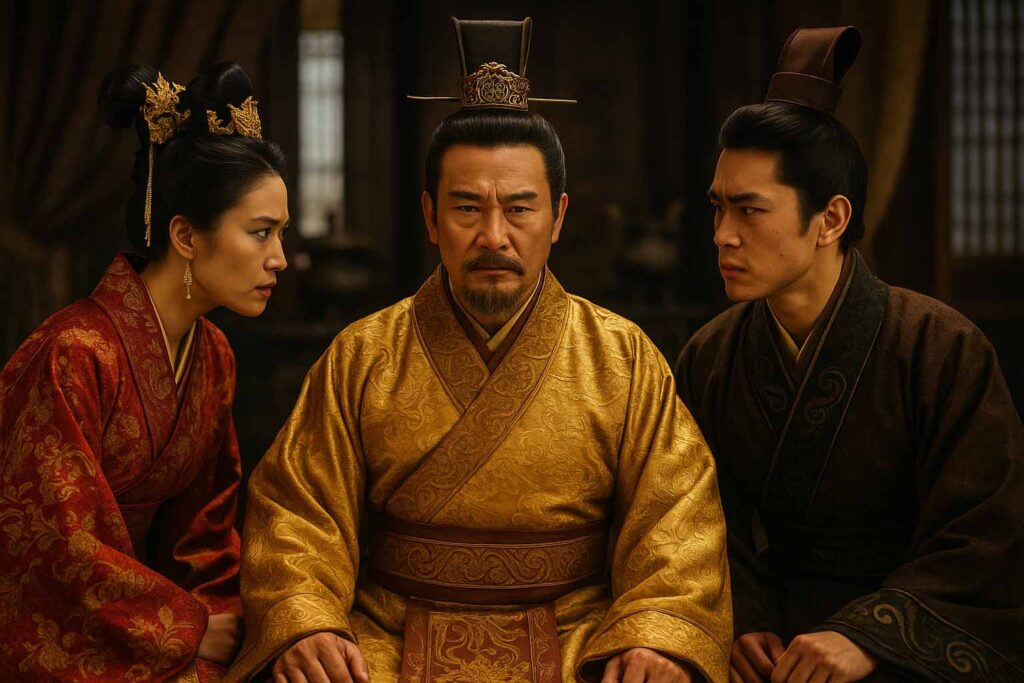
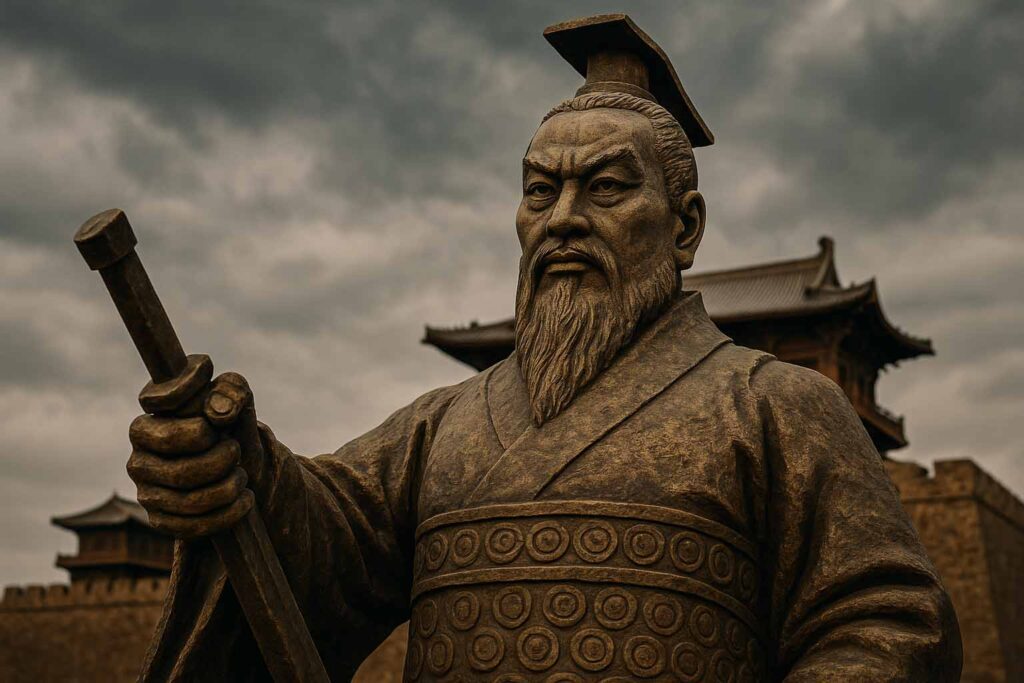
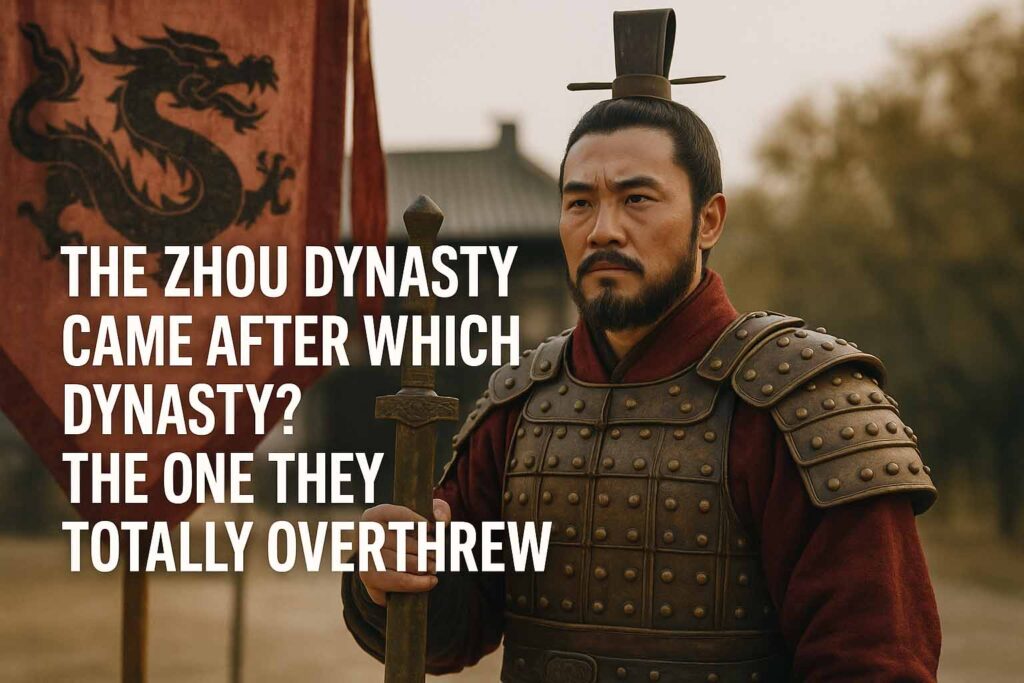
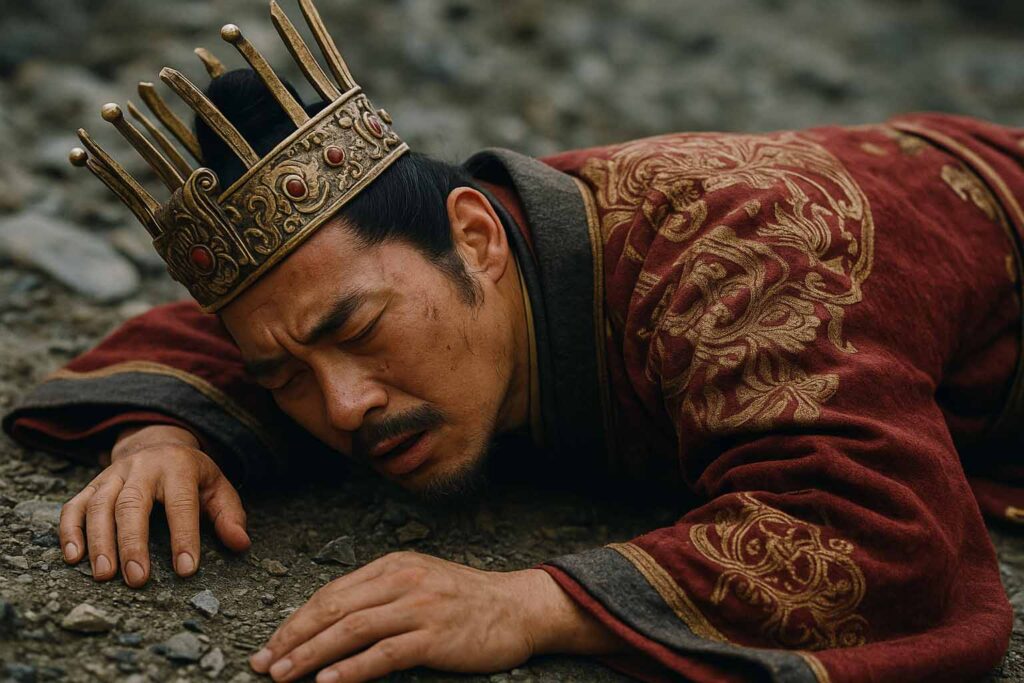
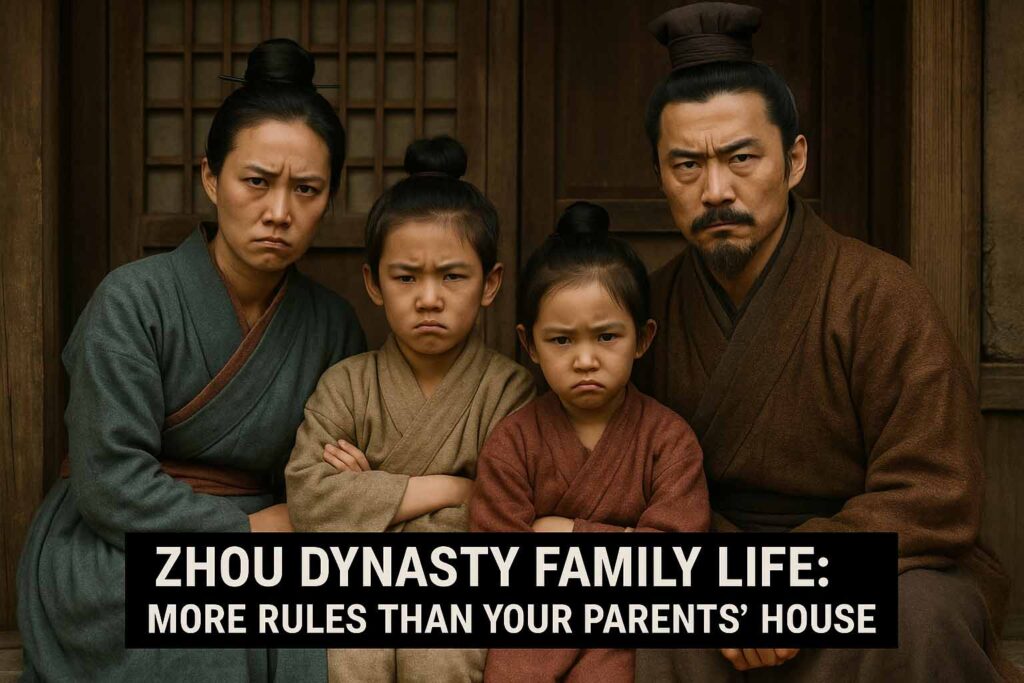
No comment yet, add your voice below!